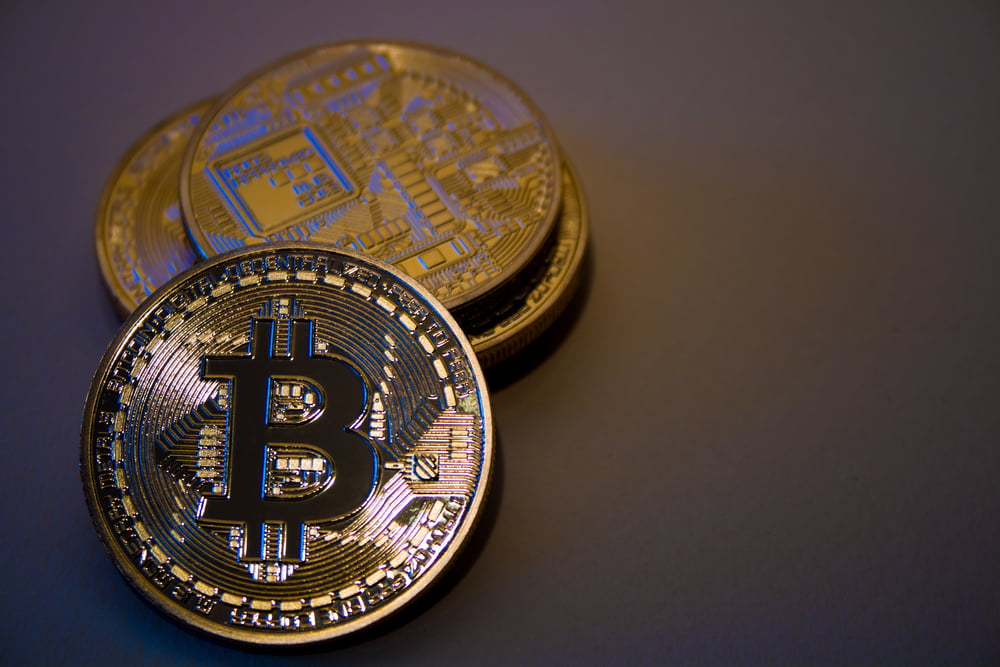What Blockchain Is,
And Why Some Experts Say It's As Revolutionary As The Internet
IBM Blockchain user interface designers
Dante Guintu, left, and Andrea Lee work on secure blockchain apps at IBM San Francisco in February 2016. (George Nikitin/Feature Photo Service for IBM, via AP) Tech experts say it's the next major revolution that could change our lives as drastically as the internet once did. (I know, it's hard to fathom, but try to think back to card catalogs.) It's called "blockchain" and was the subject of a recent event organized by the MIT Technology Review. If you're not familiar with the concept, read on. We hope to answer some basic questions.
What is the blockchain?
If you've ever tried to run a business, you're probably familiar with the idea of a ledger — a written list of transactions (think Excel or an old-school balance sheet in a binder). Essentially every multinational corporation or small Mom and Pop business uses ledgers to track sales and expenses.
In the most basic form, a blockchain refers to a shared digital ledger. "It's a global ledger that can record any transaction, and it'll keep that transaction and all the details associated with that transaction secure," explained Jalak Jobanputra, who runs Future Perfect Ventures, an early-stage venture capital fund that focuses on investments in blockchain technology. And by having this system digital and public, blockchain advocates say it makes it easier to prove, track, trust and audit transactions.
The Buzz Behind 'Blockchain'
Blockchain got its start as the underlying technology behind Bitcoin, a decentralized digital cryptocurrency created in 2009. But while Bitcoin has had ups and downs over the years, for Neha Narula, who leads the Digital Currency Initiative at the MIT Media Lab, Bitcoin proved it was possible to send payments from one person to another securely without a "trusted third party." "We just quite simply hadn't seen that before," Narula said. "We'd never seen digital money transfer without a bank being involved and now we see it. And it's pretty cool and it's given us a lot of ideas for other things we could do."
Why is this tech considered so revolutionary?
Tech experts say the blockhain can be used for so much more than Bitcoin. For example: It's being used by a startup called Everledger to track diamonds (so fake rocks and blood diamonds can be found more easily); it's being used by Walmart and IBM in China to track pork (so recalling contaminated food would be easier to handle); and it could be used in our modern banking system (so that you could more easily and securely transfer money between bank accounts).
It's the potential to cut out the middleman and create a digital record, more than the current reality of Bitcoin, that excites tech experts. "In a world where we trust our institutions less and less, having technologies that help us conduct business and get things done without needing to depend on central third parties seems ever more important," said Brian Behlendorf, the director of hyperledger, an umbrella project for open source blockchains.
Many companies and startups compare the blockchain world to the early days of the internet — it's decentralized and permission-less. "It's in some ways a little less sexy, a little harder to understand [than the internet], but for the people who get it, this suddenly becomes exciting," said Behlendorf, who believes this technology will revolutionize transactions the way the internet revolutionized communication.
OK, so if this is akin to the early days of the internet, where are we in that timeline?
I asked this question to a few different people working in the blockchain arena, and here's what they said.
Behlendorf:
I'd say it's '95/'96, we're still before seeing a lot of return on the investments people are making in this space … but the value is becoming evident … but even in those early days, there was still this — why should we bother? Why should we make this happen?
Amber Baldet, who leads blockchain efforts at JP Morgan:
I don't think it's the '90s, I think it's closer to the late '60s. I keep a diagram behind my desk of ARPANET in 1969 … the proto-internet of these kinds of closed networks at the time that were completely academic. And those architectural diagrams look remarkably similar to the pilot … diagrams that are connecting a couple of banks [in a blockchain]. So I think we're really in that early of a days of the internet. But if you accept that the rate of technological change has increased … we'll probably see an explosion of innovation within the blockchain space over the next five, 10 to 20 years.
Narula:
I think we're actually in the '80s, we've got a ways to go. And what I mean by that is we're still figuring out some really basic underlying protocols. … This is the stage where there's a bunch of nerds sitting at Berkeley and MIT and CMU and UCLA who are sending each other emails, that's the stage we're at.
But for Narula, there's one key difference that makes this moment kind of "weird" and "scary." "Back then it was a bunch of scientists, you know, working in universities and government-funded research labs. No one was paying attention," she said. "Now, you've had all this attention … every major bank has people focusing on a blockchain." Experts say roughly $1 billion of venture capital money went toward blockchain startups in 2015. And Narula's not sure what that investment money means for the technology.
Blockchain bubble?
Back in 2014, Felix Salmon, a financial journalist, and a high-profile Bitcoin skeptic, made a bet on NPR's "Planet Money" that bitcoin was a bubble that would burst. It hasn't popped yet, but it also hasn't become commonplace. According to the 2015 Survey of Consumer Payment Choice by the Federal Reserve of Boston, less than half of Americans had heard of any form of virtual currency. (Here's more from the Boston Fed on awareness of virtual currencies.) Still, even if Bitcoin fails, it's the underlying technology that could be resilient and revolutionary.
But how revolutionary is the question? Earth-shattering or just merely important. "The Bitcoin client is about 30,000 lines of code," Emin Gün Sirer, a professor at Cornell University, said at the MIT Tech Review conference. And he points out that in general code is "buggy." Gün Sirer has been researching ways in which the blockchain can fail. And while he believes blockchains "offer a completely different way of looking at the world and completely transforming it," he's also concerned some of the million-dollar VC funding is hype.
Chuck Reynolds
Contributor
Alan Zibluk Markethive Founding Member










